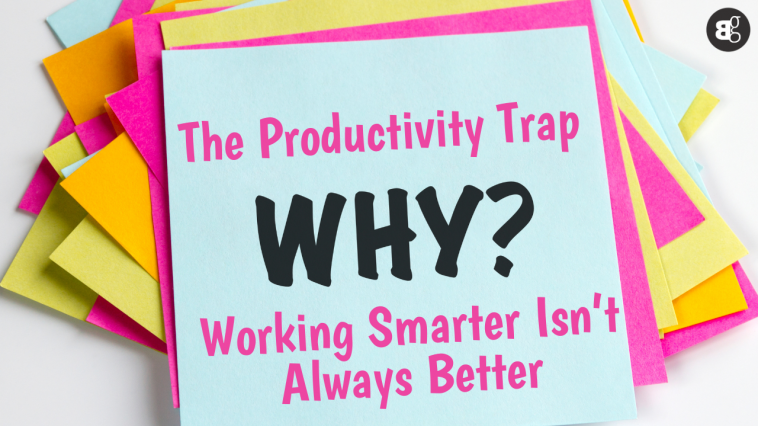I vividly recall the first time I fell for the promise of ultimate productivity. It was during the “work smarter, not harder” craze. My social media feeds were flooded with articles and posts about the latest productivity hacks, from bullet journaling to time-blocking and morning routines. I was sure that with a few adjustments to my daily schedule, I could strike a perfect balance between job, personal commitments, and side efficiency. My expectations were not entirely met by reality.
The Reality of Productivity Tools
I started by meticulously tracking my daily tasks in increments of 15 minutes. I tested out various productivity apps available, each promising to enhance my efficiency. Soon, I found myself relying on alarms to remind me to take breaks for activities like walking and meditation, all in the name
However, as time passed, I noticed a peculiar trend. Despite my efforts to streamline my routine, I ended up feeling more overwhelmed and busy. Rather than creating more time in my day, these tools trapped me in a cycle of endless optimization.
Read More: 15 Social Media Management Tools for Increasing Your Productivity in 2023
The Productivity Industry and Its Downside
Numerous individuals encounter this challenge as well. There is a large industry focused on productivity that offers various tools such as books, apps, and courses promising to boost effectiveness and accomplish more with limited time. Although these methods can be helpful at first, they can also have negative outcomes.
They promote the idea that we need to always aim for peak productivity, leading to burnout, heightened stress, and a constant feeling of not measuring up. The expectation to utilize every moment of the day raises the important question: are we genuinely reaching our maximum capabilities by constantly striving for optimization?
When Productivity Becomes the Ultimate Goal
Emphasizing the importance of working smarter implies that productivity is the ultimate goal. However, what if the issue is not a lack of intelligence in our work approach, but rather an excessive amount of work being done?
The relentless pursuit of efficiency often neglects the significance of rest, leisure, and pursuing our passions, which are equally essential as completing tasks. Studies suggest that an excessive emphasis on productivity could impede our creativity and harm our well-being.
The Problem with Hustle Culture
Consider the prevalent hustle culture that values constant work and activity around the clock. On social media, we encounter content that celebrates this lifestyle, with influencers and business owners proudly displaying their relentless work habits as a demonstration of their dedication.
However, this culture can be harmful, as it implies that one must always be working hard to succeed. Consequently, individuals find themselves working longer hours without necessarily achieving greater productivity.
Prioritizing Tasks Without Substance
Our obsession with efficiency frequently causes us to ignore the true value of our work and instead prioritize things according to how simple they are to do. As a result, we can discover that we are simply crossing things off without thinking about the consequences. To truly work efficiently, we need to take a step back, assess genuinely drive meaningful results.
The True Meaning of Effectiveness
Over the past ten years, I have started the significance of various productivity strategies. I have come to realise that genuine effectiveness is not about cramming more tasks into your schedule but rather making room for activities that bring you joy. Recognizing that free time is not time squandered is crucial, as taking breaks is just as essential as being productive in life.
Read More: 6 Tips for effective time management and maximum productivity
Breaking Free from the Productivity Pressure
When you reach for your go-to productivity app or feel maximally efficient, pause and take a deep breath. Ask yourself: are you truly working effectively, or are you caught up in a cycle of unnecessary productivity pressure? Remember, life isn’t a contest to see who can accomplish the most. Sometimes, is to slow down, and let things unfold naturally with guilt-free idleness.
Conclusion
In the end, achieving greater efficiency is not so much about managing your schedule, but rather about focusing on what’s truly important. It’s often the case that restraint and simplicity can be more effective than excess and overexertion.





